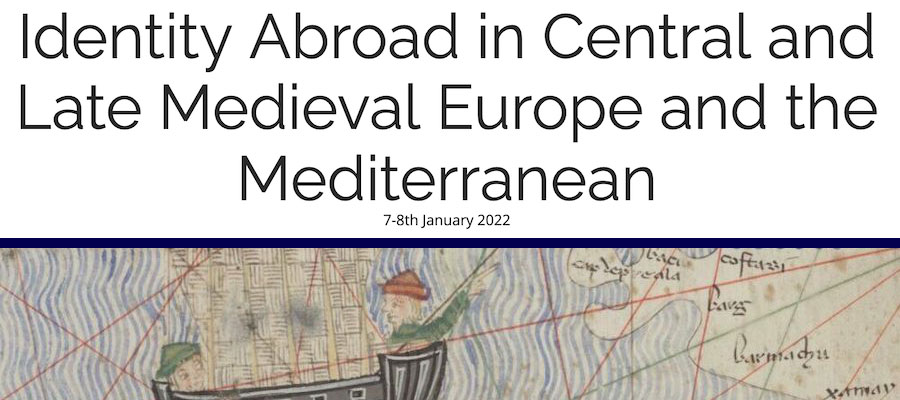Identity Abroad in Central and Late Medieval Europe and the Mediterranean, University of Cambridge, January 7–8, 2022
Life in the central and late Middle Ages was characterised by high levels of mobility and migration. Shifts in political, economic, cultural and religious life encouraged and sometimes forced individuals and groups to move ‘abroad’ permanently or temporarily, to places nearby or further afield.
Organisers from the Universities of Cambridge and Oxford invite papers for their upcoming conference Identity Abroad in Central and Later Medieval Europe and the Mediterranean, to be held at Cambridge 7-8 January 2022.
The position and impact of these ‘foreigners’ in societies has been widely discussed. However, what is less considered is how they understood and (re)presented themselves. Our conference aims to explore the construction, expression, and practical significance of different forms of social identity among individuals and groups living ‘abroad’ in Europe and the Mediterranean in the period from the eleventh to the fifteenth century.
We invite proposals for 20-minute papers from graduate and early career researchers working across all relevant disciplines in the Humanities and Social Sciences. By bringing together a variety of different perspectives, the conference not only aims to consider how ‘identity abroad’ functioned in specific contexts, but also to emphasise developments, patterns, and divergences. Topics of interest include, but are not limited to:
- Individuals and groups living ‘abroad’, such as merchants, artisans, pilgrims, scholars, diplomats, soldiers, exiles, ethnic and religious minorities, and captives and enslaved people
- Voluntary or forced, temporary or permanent migration
- Importance of political allegiance, language, cultural heritage, and faith in identity construction
- Means of identity expression, such as written production and material culture
- Relations between different ‘foreign’ individuals and groups
- Interaction and assimilation/resistance to assimilation with ‘local’ populations, institutions, and rulers
- Impact of gender, socio-economic background, and other types of differences
- Theoretical treatments of the concepts of ‘identity’, ‘foreignness’, and ‘abroad’ in the Middle Ages
The organisers plan to hold the conference in person in Cambridge, UK. However, this may change to reflect developments relating to Covid-19.
